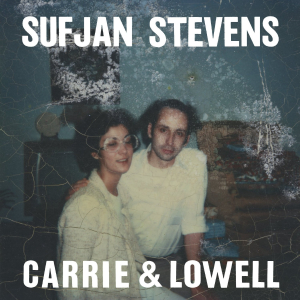According to my
LastFm, I've listened to Joyce Manor a staggering 590 times the past three months. That's roughly 6.5 songs per day. Considering the group only has released two LPs, containing a total of twenty songs that amount to less than 40 minutes of music, 590 listens is an obscene amount of repetition. It's a minor miracle I haven't played out--or completely buried--"Catalina Fight Song," a track that I've played 65 times (and counting) in the past quarter of the year. Yet Joyce Manor, and particularly the group's newest album
Never Hungover Again, has endured triumphantly, sounding as fresh and invigorating as it had in my earliest of listens.
Although I think
Never Hungover Again (
NHA) is a beautiful and compelling album, I actually don't want to write about it here. Instead, I want to record my experiences listening to
NHA because the album has evoked a response I've only encountered a select few times: loving an album so much that it becomes an absolute obsession, something that won't leave my head and that demands constant replaying for mere temporary satisfaction. That description sounds a lot like addiction, and maybe it is, but this addiction is a wonderful one. I love the yearning for
NHA, the anticipation of putting the record on, and the euphoric rush when those first staticky notes of "A Christmas Card" blast from my speakers. After listening to the less-than-twenty-minute album in its entirety, I almost inexorably find that one mere spin insufficient. The craving persists. So I return to these handful of songs again and again, sometimes even putting one song on repeat--which I almost never do, generally because 1) I fear I'll overplay and thus ruin a good song and 2) I'm often satisfied after one listen and want to move elsewhere. But my experiences with
NHA have been very different.
As I said, despite my near lifelong love of music, this kind of obsession with an album has only happened two other times in my life: in 2003, when I could not be separated from Coheed and Cambria's (still excellent)
The Second Stage Turbine Blade, and in 2006, when I listened almost incessantly (seriously,
incessantly) to Cursive's
Happy Hollow. During the former, I remember one school trip when I left my CD player at home and actually felt feelings similar to withdrawal: anxiety, loneliness, intense sadness, longing, fixation. I also distinctly recall my great relief upon returning to my bedroom and experiencing the cathartic close of "Everything Evil." I couldn't have waited another minute to hear that album; I had been separated all day from that which mattered most to me, and such distance was unbearable. The second instance was when the newest album from Cursive, my favorite band for at least half of a decade, leaked. Of course I had a copy shipping, but by the time it arrived, I had probably listened to the album fifty times. And I write this with no exaggeration-- I'm talking about consecutive hours of listening from start to finish, and then repeating. Maybe there was food (there was probably food), but otherwise, no interruptions. That album was partially so special to me because I had discovered Cursive in 2004, a year after they released
The Ugly Organ, and had spent years in awe of the group's near-impeccable (and for me life-changing) catalogue.
Happy Hollow, though, was my first chance to hear a record at the same time as everybody else. And I loved that. I didn't want to hear anything else then, and when you were around me that summer, you probably didn't hear much else...
Eight years later, after hearing so many amazing records from all the amazing bands I love, only now am I experiencing these obsessive tendencies again. Why now, and why this record? I can't be sure. I've been inspired and deeply moved by music since 2006, but nothing has brought these intense emotions of insatiable longing and continued (but temporary) satisfaction. The second song on
NHA is called "Falling in Love Again," and I think that's a fitting explanation for what I'm presently enjoying. I truly
love this album. It's a real pleasure to feel this way about music again -- to have a silly 20 minutes of sound overwhelm me with happiness when I hear it and burn with desire when I can't. I do not think
NHA is the best album I've heard since 2006--no doubt about it, really--so I can't pinpoint why this record has affected me so powerfully. Maybe love works in mysterious ways. Ugh, I know,
I know, it's corny to talk this way about an album, but I feel all the symptoms. So there.
The thing about this kind of love, though, is that it's fleeting. Someday, the desire to hear
NHA will fade, which saddens me even as I'm so thoroughly enjoying these listens. While rocking out, I sometimes think in the back of my head "How long will this feeling last?" "Are you playing this album too much?" "Maybe give the record a break..." I've become so attached to this album that I'm constantly afraid I'm going to lose it -- that the power of
NHA will fade and the record will become just another CD on my shelf. Joyce Manor actually best sums up these paranoid fears in "Catalina Fight Song," the band's best track to date, when they sing, "You wonder how long something can last. Pretty sure most people don't think about that..." I do wonder how long this obsession will last -- hell, maybe I'm writing it out of me as we speak, though that'd be a real shame. But I'm going to try to take the band's advice and stop wondering about when
NHA will lose its charm. Instead, I'll enjoy this wonderful, intoxicating love for as long as it persists. Who knows if I'll ever feel this way again.





